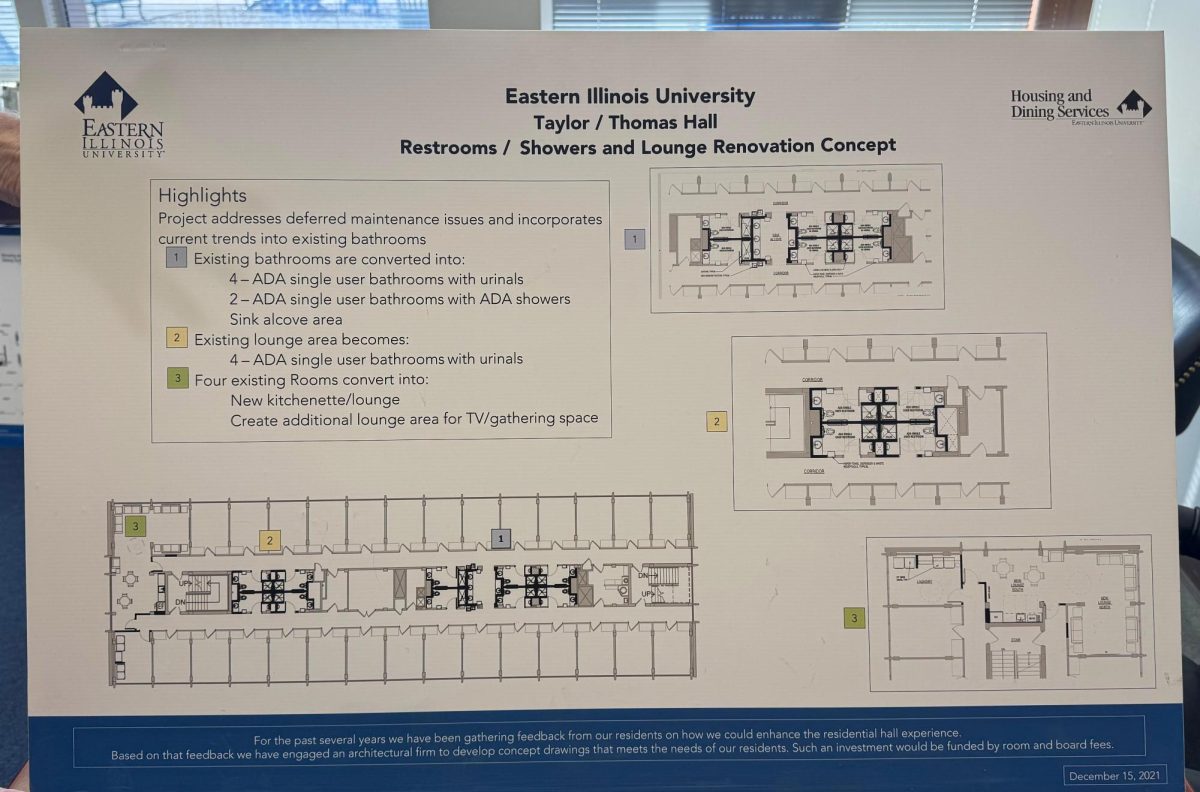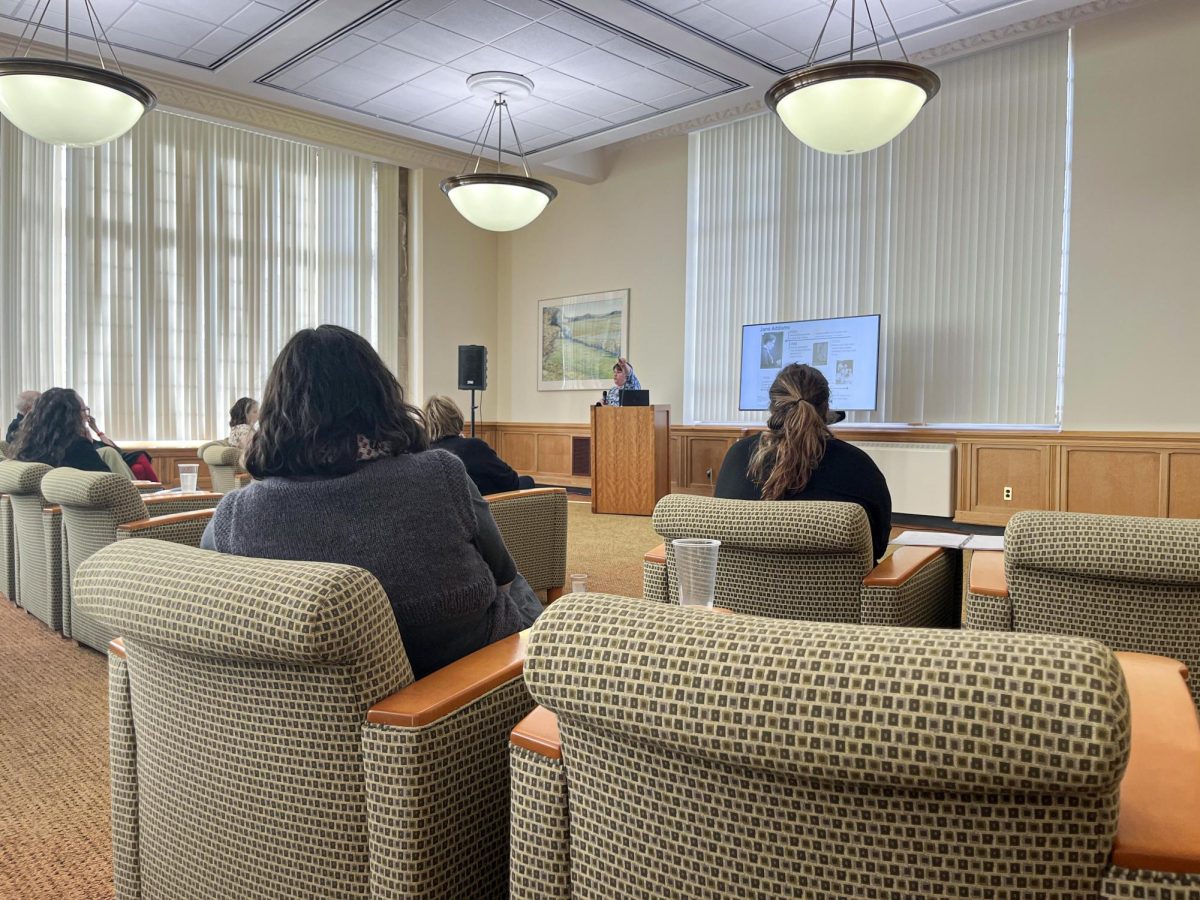Film compares modern democracy to Ancient Greece
The democratic roots of the United States will be presented in the film, “Athens: Dawn of Democracy,” from 3 to 5 p.m. on Friday in Witters Conference Room 4440 in Booth Library.
The film is being shown as a part the library’s “A Futuristic Look Through Ancient Lenses: A Symposium on Ancient Greece,” which is ending Nov. 7.
David Bell, a reference librarian at Booth Library and the film moderator, said the film shows how Greece, specifically Athens, developed things that affect life today.
One of the main focuses of the film was Athens’ development of the democratic process.
Bell said the Athenian democracy back then is different from what the United States has today.
“The difference between an Athenian democracy and what we have here, is a representative democracy,” Bell said. “We elect people to represent us in the government. In the Athenian democracy everyone was part of government.”
The film, which was produced by PBS, documented when this democratic process was created, women and slaves were not viewed as equals to men and therefore did not have a role in the government.
“In that society, everyone they thought who counted, men who were not slaves (had a vote),” Bell said.
Bell said these men were randomly chosen so everyone could have a turn at making decisions.
“It was democratic in a sense that they had a very elaborate system of choosing who would represent the people in various aspects of government,” Bell said. “Everyone served at one point.”
Another focus the film touches on is how Athens became a major empire with a large, strategic navy.
Bell said Athens came to be a great military power after the Athenian people voted to go to war.
“They were also very militaristic society and they used the democratic process to vote to go to war quite often and conquered the areas around them,” Bell said.
While Athens was becoming a major military force, Athenian people were developing modern art, science and philosophy.
Bell said Athens also valued the freedom of speech like the modern United States.
One of the practitioners of free speech at that time in Athens was the philosopher Socrates, Bell said.
“Socrates was someone who questioned everything,” Bell said. “When things were going well, when Athens created a democracy and became a power in the world, they had a respect for freedom of speech, and someone like Socrates was welcome and everyone wanted to learn from him.”
The film said that time before and during the Athens rise to power was considered the “Golden Age of Athenian Democracy.”
But as the Athenian empire declined, so did Athenians desire for freedom of speech.
Bell said the Athenian people voted to have Socrates killed because of his lack of participation in the government, which meant to the Athenians that Socrates disapproved of it.
“Socrates was saying things that the leaders did not want to hear and questioning their authority,” Bell said. “They kind of turned on him.”
Bell said it is important for everyone to look at where our government comes from because similarities can be seen between the modern and the Athenian democratic process from 2,500 years ago.
Amanda Wilkinson can
be reached at 581-2812
or akwilkinson@eiu.edu.









![[Thumbnail Edition] Eastern Illinois University baseball senior utility player Tyler Castro fields a ground ball during the team's first intrasquad scrimmage of the season on Jan. 31.](https://www.dailyeasternnews.com/wp-content/uploads/2025/03/BB_01_O-e1742874760130-1-e1742907504722-1200x911.jpg)

![[Thumbnail Edition] Senior tennis player Luisa Renovales Salazar hits the tennis ball with her racket at the Darling Courts at the Eastern Illinois University campus in Charleston, ILL.](https://www.dailyeasternnews.com/wp-content/uploads/2025/03/Tennis_01_O-1-e1741807434552-1200x670.jpg)

























![[Thumbnail Edition] Senior right-handed pitcher Tyler Conklin pitching in the Eastern Illinois University baseball team's intrasquad scrimmage at O'Brien Field in Charleston, Illinois on Jan. 31.](https://www.dailyeasternnews.com/wp-content/uploads/2025/03/TC_01_O-e1741567955534-1200x669.jpg)
![E[Thumbnail Edition] Eastern Illinois softball freshman utility player Abbi Hatton deciding to throw the softball to home plate in a fielding drill during softball practice at the field house in Groniger arena on Tuesday Feb. 11.](https://www.dailyeasternnews.com/wp-content/uploads/2025/03/SB_03_O-e1741208880750-1-e1741209739187-1200x815.jpg)














![The Weeklings lead guitarist John Merjave [Left] and guitarist Bob Burger [Right] perform "I Am the Walrus" at The Weeklings Beatles Bash concert in the Dvorak Concert Hall on Saturday.](https://www.dailyeasternnews.com/wp-content/uploads/2025/03/WL_01_O-1200x900.jpg)
![The team listens as its captain Patience Cox [Number 25] lectures to them about what's appropriate to talk about through practice during "The Wolves" on Thursday, March 6, in the Black Box Theatre in the Doudna Fine Arts Center in Charleston, Ill.](https://www.dailyeasternnews.com/wp-content/uploads/2025/03/WolvesPre-12-1200x800.jpg)
















